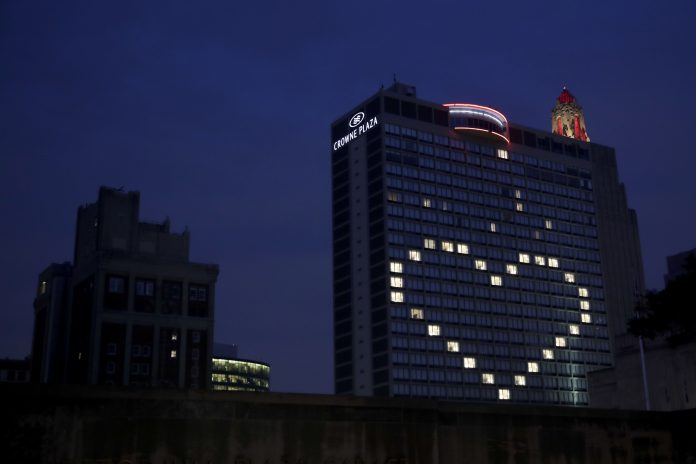
Hotels and home-sharing companies are beefing up their cleaning efforts in order to soothe jittery travelers.
Hilton said Monday it’s teaming up with RB — which makes Lysol and Dettol disinfectants — and the Mayo Clinic to develop new cleaning procedures that will be in place by June. The news follows Marriott’s announcement last week that it’s creating a cleanliness council to develop new standards. Marriott’s council includes infectious disease specialists and an expert from EcoLab, which makes commercial cleaning products.
Airbnb also said Monday that it’s developing cleaning protocols for its hosts with guidance from former U.S. Surgeon General Dr. Vivek Murthy and EcoLab. Airbnb said starting in May, guests will be able to see if a host commits to Airbnb’s new cleaning protocol, which includes requirements for cleaners to wear masks and use certain disinfectants. As a precaution, hosts will also be required to observe a 24-hour waiting period before booking new guests in a property.
Hospitality companies have been hammered by the new coronavirus. U.S. hotel occupancy is at a historic low, and many hotels worldwide have closed temporarily and furloughed staff. Airbnb has promised $250 million in reimbursements for hosts to help make up for lost business.
As restrictions ease, companies know they need to make guests feel safe.
“There’s always been an expectation that it would be clean, but now the clean has a double exclamation point after it,” said Phil Cordell, senior vice president and global head of new brand development at Hilton.
Hilton will require franchisees to adopt its new cleaning program, Cordell said. The program will roll out globally to all 6,100 Hilton hotels by the end of May. Cordell said Hilton expects travelers to slowly start returning to its hotels in mid-summer.
In North America, the program will be advertised to consumers as Hilton CleanStay with Lysol. Cordell said Hilton has always used commercial cleaning products, but thought partnering with a well-known consumer brand like Lysol would emphasize how serious it is about cleaning.
Hilton plans to put a seal on the door of a room that has been cleaned and disinfected, so guests know no one else has entered. It’s doing away with pads of paper and pens in the room, and it will close fitness centers more often to wipe them clean. Stations with disinfectant wipes will be added throughout hotels.
Cordell said Hilton anticipates some things will change over time, like requirements that guests sit further apart in dining rooms. But he thinks the new cleaning protocols are here to stay.
“I don’t think it’s a short-term thing. I think it’s a long-term thing,” Cordell said.
Airbnb believes consumers might seek out its shared homes when the virus recedes because they can stay further apart from other guests. The company says as of late March, reservations at least six months out were trending higher than last year.
But unlike hotels, Airbnb could have a harder time enforcing standards at its 7 million listings. The company said hosts who don’t commit to its new cleaning standards can opt for a new feature that will keep their properties empty for longer than 24 hours between stays.



















